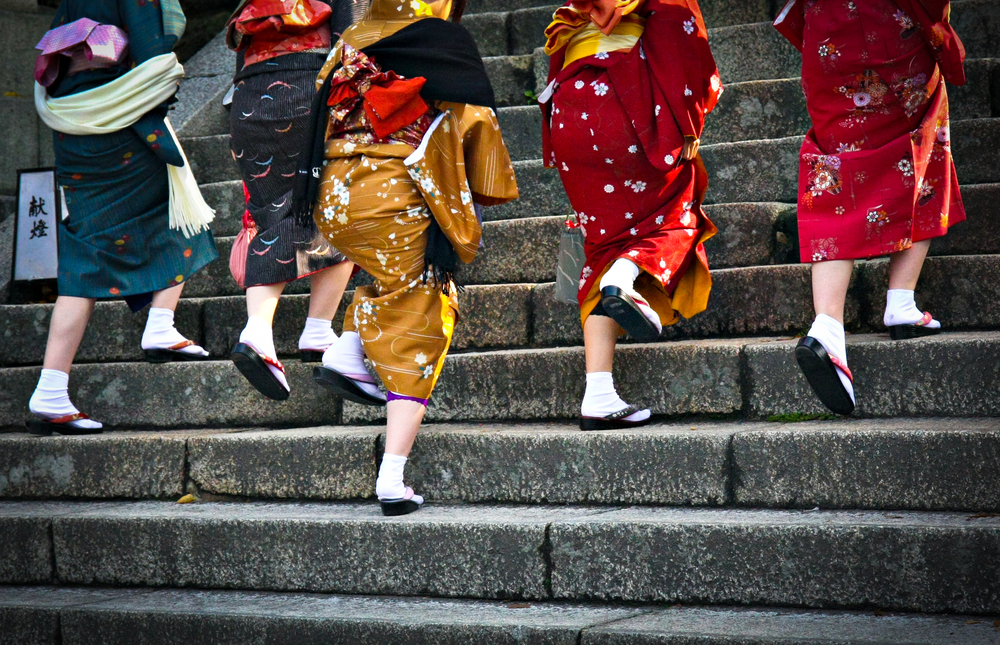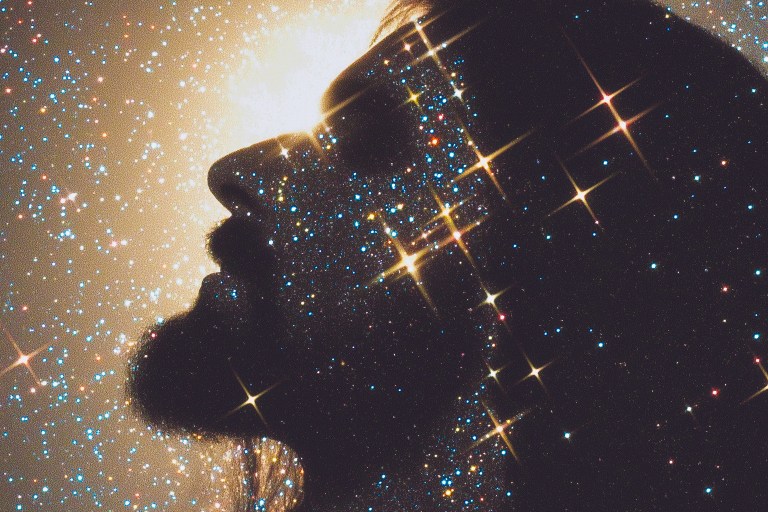
What It’s Like To Be Half-Japanese
Being exposed to this kind of treatment day in day out is a subtle reminder that I will never blend into the societal fabric. I’ve heard this being referred to as racial fatigue.
Eurasian, half-Japanese, bi-racial, mixed race, hafu, hapa, double, hybrid, dual culture, TCK (third culture kid,) the axis of evil (yeah, yeah: I am German and Japanese, get over it.) However you choose to describe me my lineage is often one of the most frequently asked questions when I meet new people. I have been asked if I am Brazilian, Italian, Middle Eastern, Indonesian, Malaysian, Turkish, and basically every nationality under the sun. I can’t keep up with the flavor of the day in terms of political correctness anymore so for the purpose of this article I am going to refer to people like myself as halflings.
I mean this as a term of endearment, and also as a tribute to one of my favorite TV series coming to an end this week. True Blood had me going for seven strong seasons and I am already mourning the loss. The series explored the halfling protagonist Sookie Stackhouse’s (played by Anna Paquin) struggles with being half fairy, half human. Now, I admit what I am is not nearly as exciting as being half fairy but I can relate to many of Sookie’s trials and tribulations of being being caught between two worlds.
I am not speaking out on behalf of all halflings everywhere, but simply want to share with you my experiences of being what I am in Japan. I have never experienced racism but rather the us versus them concept — not discrimination but differentiation. I don’t have any painful memories. If anything, we halflings get special treatment in Japan. We are often viewed with a mixture of curiosity, awe, envy, admiration, adoration, sometimes suspicion or confusion and a barrage of other emotions.
In the sixth grade, I attended a public Japanese primary school for one semester. I received extra attention from my classmates as well as from students in other classes who I had never met before. They would stare at me and observe and comment on my movements. Some of this I still experience today. This kind of innate curiosity — like an exotic zoo animal released from the confines of its cage roaming free in their natural habitat. I can almost hear their thoughts — it doesn’t look like us, walk like us, or talk like us — but it speaks and understands our language and customs. It’s not Japanese and it’s not completely foreign. What is it?
It’s almost the opposite of bullying. People treat me differently everywhere I go. We are singled out for no other reason than the fact we are of mixed blood. And feeling those eyes on me… there’s a discomfort that comes with that. I will never be fully accepted by the Japanese as one of their own. I feel that Japan belongs to me, but I don’t belong to it.
There are always comments on which parts of my personality are Japanese, which are “foreign” (yes, anything non-Japanese is one big blob). In Japanese culture you are expected to be reserved, but I don’t hold back. I’m not really a fan of “reading the air” so I take the hidden out of the air and expose it. This is considered taboo. This may be more a cultural divide however, and something so ingrained into the Japanese way of life.
If I make a reference to a Japanese quote I am asked how I could possibly know that. How could I eat natto (fermented soy beans, popular Japanese breakfast food,) or umeboshi (salted pickled plum) or ikura (salmon caviar)?
I am constantly spoken to in English despite my fluent and unaccented Japanese. At the airport immigration I am ushered into the line for foreigners to get my passport stamped. When I went to my local bank to open an account was told to head to another level where they handle foreigners. As a child model, my transportation and other fees getting to and from castings were covered, for the simple fact that I am a halfling. My surname is not legally recognized, since my family name, Reimann, is so obviously un-Japanese. When it comes to legalities, I must use my mother’s maiden name, Takatsu (I still retain Japanese citizenship).
Then there are the off-hand comments that mean no harm, but slowly grate over time.
You wouldn’t know because you’re a half.
You’re not Japanese, you’re a half.
Your Japanese is really good for a foreigner.
Are you a half?
I wasn’t expecting Japanese to come out of that face.
You’re a half? Let’s hang out.
You’re cute because you’re a half.
What are foreigners like?
(Gasp) The foreigner speaks Japanese!
But you’re not really Japanese. You’re a half.
Being exposed to this kind of treatment day in day out is a subtle reminder that I will never blend into the societal fabric. I’ve heard this being referred to as racial fatigue.
A couple of years ago, I attended my cousin’s wedding here in Japan. Living in Melbourne at the time, I flew in just for the wedding and had just minutes to spare as I arrived at the venue. There is a Japanese tradition at weddings where the family members and relatives of the bride and groom introduce each other before the ceremony. The groom’s family stands on one side in a line, with the bride’s family facing them. As one of the event coordinators ushered everyone into place, I spotted one of my cousins, the bride’s sister. I stood next to her, eagerly chatting away since this was the first we had seen other since my arrival. The event co-ordinator approached me hesitantly, “This is for family members only…”
I stared at him blankly. “I am family.”
With an almost pained look on his face, he repeated, “I need you to stand over there while the family do the introductions…”
This time I spoke with a little more force. “I am family. I am where I need to be.”
Now desperate to stop this gaijin (foreign) chick from ruining everything, he turns to my cousin and asks her to please tell her gaijin friend this is a family- only event.
I really don’t think he was prepared for her answer.
“She is family.”
With that, the event coordinator walked away looking dazed and confused. How could this foreign-looking girl possibly be part of this pure Japanese family?
There exists an incessant need to place labels of everything and everyone. Pure Japanese… that’s actually a term used in the Japanese language. Jun-nihonjin is someone who is born to Japanese parents in Japan, raised Japanese, and walks and talks like a Japanese person “should.” There there are the hafus (halfling beings like myself) and also the kikokushijo which roughly translates to returnee; a Japanese citizen born to Japanese parents born and raised in Japan who has then spent a prologued period of time overseas then returned to Japan. By this time, they have inherited “Western” values and walk, talk and think differently. They are no longer “pure Japanese” but are now “returnees.”
Japan is one of the most homogenous countries in the world with around 98 percent of the population being ethnically Japanese. Japan is a jus sanguinis country, meaning that citizenship is based on blood, rather than location of birth. However, there has been an increase in the number of mixed-race couples giving birth to children with dual citizenship (around one in 49 babies born in Japan today are of mixed heritage). That’s pretty surprising considering the country was closed to foreigners for almost three centuries.
I am not forgetting the advantages afforded to us halflings. Halflings often grow up speaking two or more languages fluently, integrate well into other cultures having been raised in a multi-cultural household, and hold keen worldly views. As a child and teenager I did struggle a bit with not fitting in with the Japanese clique. As soon as I accepted what I was, the struggle quietened and I could let the comments and stares roll off me. I am so grateful to Australia — a melting pot for so many nationalities — for adopting me. I had no trouble assimilating in Australia, and to this day I think of it as my home.
Some people say mixed race kids should be called “double” instead of “half.” I’ve never been called double and I have no desire to be. I just wanted to be whole.
I’ll never forget the day my dad picked me up from school one day. I was 8 years old, and struggling to find balance between who and what I was. The words my father said to me have stayed with me all these years.
“You are Japanese. You are German. You are Australian. You are a child of the world — a global citizen. You are not half of anything. You are a whole. Don’t let anyone tell you otherwise.”
And I haven’t. ![]()











